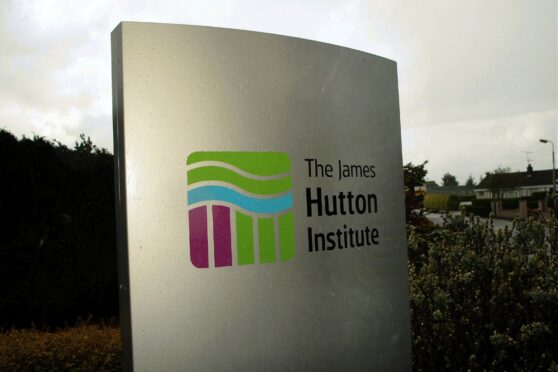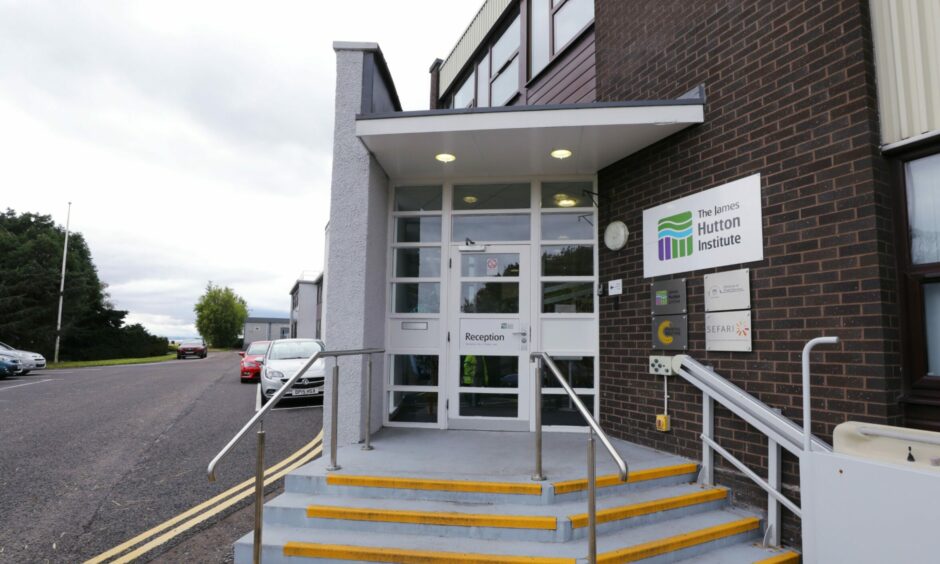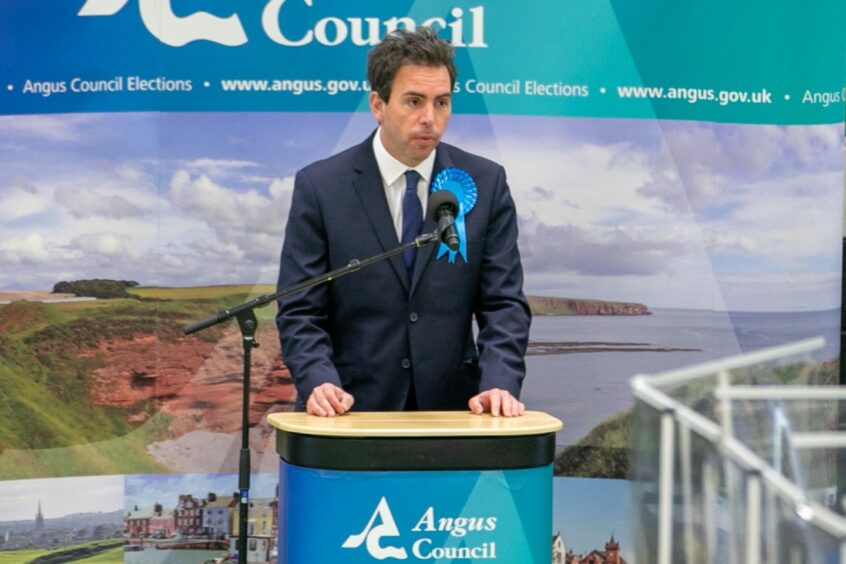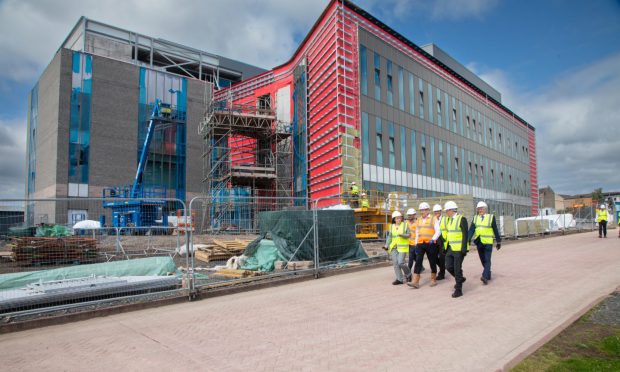Staff at the James Hutton Institute in Invergowrie could strike after the research centre confirmed job losses are inevitable.
Workers at the Dundee, Aberdeen and Edinburgh sites voted “overwhelmingly” in favour of industrial action in a consultative ballot.
Employees have been offered a 0% increase in pay this year, which the Prospect union called a “huge real-terms pay cut”.
Long-term budget reductions from the Scottish Government and the energy crisis are being blamed for the economic state the institute finds itself in.
Latest accounts filed show the James Hutton Institute (JHI) had a turnover of £4.5 million and turned an operating profit of just short of £450,000 to April 2023.
Pay costs increased across the institution by 11% during this time, explained by directors as the result of having more staff and pay awards.
The chief executive earned between £177,632 during this time, with 35 employees paid more than £60,000 annually according to the last financial report.
The chief executive salary increased by 14% on 2022, up from £155,513.
Around 500 scientists and support staff are employed by the JHI in Dundee, Aberdeen and Edinburgh.
Neither the JHI or the union could confirm how many jobs are at risk.
Vital research cannot be done ‘on the cheap’
Prospect, the only recognised union at the JHI, said staff voted in favour of industrial action to ensure those sacked are given proper pay outs.
They also want assurances for employees who remain at the JHI that the long-term future of the organisation is safe.
Ian Perth, Prospect negotiator, said: “Since the beginning of pay negotiations last year it is clear that the financial picture has deteriorated significantly and is not sustainable.
“We are calling for urgent intervention from the Scottish Government to ensure that if redundancies are necessary people are properly compensated, and that those staff who remain can have confidence that the JHI has a long-term future.
“James Hutton Institute has a world-renowned reputation for research and carries out vital work for the Scottish Government that brings essential benefits to Scotland’s rural and national economies. This cannot be eroded. We cannot have vital research done on the cheap.
“There has been significant capital investment from Scottish Government into scientific research, to much fanfare in recent years, but this cannot be at the cost of institution’s annual budgets being squeezed so significantly.
“While many in the public and private sector have had significant pay increases recently, our members at the Institute have had no cost-of-living increase since July 2022.”
Energy costs double
Blaming funding shortages from the Scottish Government and the cost of energy, bosses at the JHI said they could no longer guarantee jobs would be safeguarded.
A spokesperson said: “Like many other organisations, we are having to deal with an unprecedented financial situation caused by external factors and the difficult economic situation.
“In our case, our energy costs have more than doubled, compounding long-term reductions in our Scottish Government funding and acute increases in other business costs such as insurance.
“We have been able to safeguard jobs during various external crises over the last few years and have been exploring all options to reduce costs and generate other sources of income in order to have greater certainty and resilience around our financial situation.
“However, our options must now include a reduction in staff numbers and we can no longer safeguard jobs in the way we would wish to.
“We are unable to provide a timeline on these decisions until all options have been investigated.
“Once we have further clarity, updating colleagues will be our immediate priority.
“We appreciate that this is a stressful time for colleagues, and we are doing all we can to manage this situation as sensitively and supportively as possible.”
No ‘just transition’ without research
North East Scottish Conservative MSP Maurice Golden said: “JHI and its people have been at the forefront of UK food and environmental research for more than a decade, with roots reaching even further back.
“The work they do is widely respected and fundamentally important in today’s global landscape.
“Sustainable use of resources is crucial now and in the future.
“There will be no proper transition to a circular, carbon net zero economy without the research to back it up.
“Job losses would potentially be very detrimental for the wider Dundee scientific community.”
The James Hutton Institute works with crops, soils and land use and environmental research, to study key issues like food, energy and environmental security.
A Scottish Government spokesperson said: “The Scottish Government hugely values the James Hutton Institute (JHI), their staff and the world-class research they produce.
“Research funding has slightly increased in cash terms over the past five years, and we have sought to protect JHI from budget pressures wherever possible.
We recognise that there are budget pressures on the Institute and that difficult decisions will have to be made.
“To ensure that Scotland remains at the forefront of environmental research, JHI will receive £22.6 million in 2024-25 through the Environment, Natural Resources and Agriculture Research Programme.
“In addition, we are further investing nearly £30 million in the long-term future of the James Hutton Institute through capital grants both from the Tay City Region Deal and Just Transition Fund.
“The Scottish Government will ensure anyone affected by redundancies are directed to our PACE initiative – Partnership Action for Continuing Employment.
“This provides skills and employability support to minimise the time people are out of work.”














Conversation